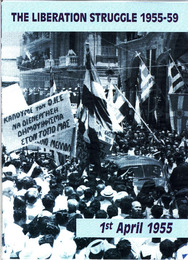The Evolution of Imitari: From Cultural Preservation to Political Awakening
Epiphanie Gashugi, a veteran member of Imitari, an all-female dance troupe founded in Belgium in 1978, recalls the remarkable journey of her group from a cultural haven for Rwandan refugees to a powerful force in Rwanda’s liberation struggle. Initially formed to preserve culture and foster unity among young Rwandan girls in exile, Imitari transformed into a symbol of resilience, identity, and political awakening.
A Shift in Purpose
At first, Imitari focused solely on cultural preservation. However, everything changed in 1987 when the troupe connected with Fred Gisa Rwigema, who invited them to meet him during his visit to Germany. “Rwigema invited us unexpectedly. He was in contact with my sister who was married in Germany,” Gashugi recalls. “He asked my sister to invite our troupe to meet him, and she passed the message on to me.”
At the time, Gashugi was the group leader, as their leadership rotated annually. She was hesitant about meeting a “foreign soldier from Uganda,” but the troupe embraced the opportunity. “When I spoke to the troupe, they were thrilled by the idea of meeting him. We began preparing rigorously, practicing our dances and songs.”
A Meeting That Changed Everything
The troupe had limited knowledge of Uganda beyond its role as a host nation for Rwandan refugees. They admired Uganda for its post-liberation transformation under President Yoweri Kaguta Museveni and took pride in its victory as a symbol of rebirth and resistance. “We were thrilled when the man we were told was a foreign soldier, Rwigema, addressed us in fluent Kinyarwanda,” Gashugi said.
His speech stirred something deep within them. “He did not disclose any future plans then. He simply expressed appreciation for our commitment to preserving Rwandan culture and unity, especially in a country like Belgium, one with a painful colonial legacy tied to Rwanda’s suffering.”
Learning About Inkotanyi
At that stage, they had only heard rumors about the Inkotanyi, quiet murmurs shared in secret among refugee communities. “We tried to ask him about Inkotanyi, whom we had heard people mention quietly,” she said. “But Rwigema evaded the subject, saying he did not know much but would try to find out.”
From that moment, they built a connection. He would meet them whenever he visited the region. Eventually, he invited them to a traditional concert in Uganda, where they learned of the Rwandan Patriotic Army’s covert plan to liberate the country. “We were overjoyed to learn about Inkotanyi. We discovered that they loved Rwanda and were determined to liberate it, to make it possible for us, the exiled, to return home.”
The Role of Traditional Music in Liberation
Following this encounter, the troupe invited the acclaimed traditional singer Jean Marie Muyango, who traveled from Burundi to rally support for the liberation cause. He went on to form a male troupe called Ishyaka and began organizing fundraising concerts dedicated to supporting the liberation efforts.
Muyango explained how their music served as both entertainment and spiritual sustenance. “The songs we composed reminded every Rwandan who cared to listen of who they truly were. They offered hope to refugees, called for unity, and served as both entertainment and spiritual sustenance.”
Even during the war, they received feedback from frontline soldiers who said their music gave them hope, patience, and a sense of morale. “They felt seen, supported, and less alone,” Muyango said.
Preserving Cultural Heritage
For traditional music veteran Intore Butera Massamba, now the trainer of Urukerereza National Ballet, traditional dances not only fostered unity and instilled patriotic values but also safeguarded the authenticity of Rwanda’s cultural heritage, which was being distorted back home.
Massamba explained how most traditional troupes in exile had started as safe spaces where displaced Rwandans could reconnect with their culture and find solidarity amidst hardship. “We knew we had to first be Rwandans before thinking about liberating Rwanda,” he said.
Music as a Tool for Mobilization
Massamba, who joined the Rwandan Patriotic Army in 1989, used music to build support in Uganda and beyond. He remembers performing at the peak of the conflict, at Lugogo, Makerere University, weddings, and various venues across Kampala. The proceeds from these performances were channeled directly to the party to support the fighters on the frontlines.
Through their music, they composed songs that stirred the souls of soldiers, melodies broadcast on Radio Muhabura and echoed in military camps. These songs chronicled the struggle, reignited the purpose of the mission, celebrated the bravery of the troops, and revived the fading hope of liberation.
A Legacy of Resilience and Hope
Massamba, who visited Rwanda periodically before and during the war, witnessed firsthand the horror left by the 1994 Genocide against the Tutsi. “The country was covered in corpses and stripped of hope. In some areas, the killings were still ongoing,” he recalled.
However, the role of traditional music did not end with the victory. Like every other sector of the nation, the entertainment and cultural industries had to begin from scratch, amidst a population shattered by genocide and displacement. Music enthusiasts say traditional rhythms were transformed into songs of hope, carrying messages that promoted unity, encouraged healing, and inspired Rwandans to rebuild their nation together.







